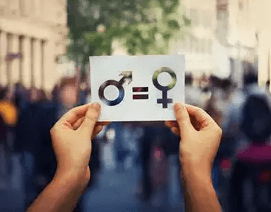SDG Gender Index: India ranked 95
In first-ever SDG Gender Index which measures progress made in achieving gender commitments against internationally set targets, India was ranked 95th out of a total 129 countries. The Index is developed by Equal Measures 2030, a partnership effort of regional and global organisations.
About Index
- Indicators: It includes 51 indicators across 14 of 17 official Sustainable Development Goals (SDG).
- These indicators are those that are gender specific and those that are not but have an effect on girls and women like poverty, health, education, political representation and equality at the workplace.
- Methodology: The overall scores of this Index are based on scale of 0–100. Score of 100 indicates achievement of gender equality in relation to underlying indicators while score of 50 indicate that a country is about halfway to meeting its goal.
Key Findings
- The global average score of 65.7 out of 100 (means “poor”) shows that till date no country has fully achieved commitment about gender equality.
- This shows that almost 40%, of world’s girls and women (around 1.4 billion) live in countries failing on gender equality and another 1.4 billion live in countries that barely pass the benchmark.
- Top 10 countries: Denmark (1), Finland (2), Sweden (3), Norway (4), Netherlands (5), Slovenia (6), Germany (7), Canada (8), Ireland (9), and Australia (10).
- Bottom 10 countries: Sierra Leone, Liberia, Nigeria, Mali, Mauritania, Niger, Yemen, Congo, DR Congo and Chad.
- India’s Performance: India’s overall score was 56.2 which means that it is among 43 countries that fall in the ‘very poor’ category.
- India scores were highest in health (79.9), hunger (76.2) and energy (71.8). It performed poorly in partnerships (18.3), industry, infrastructure and innovation (38.1) and climate (43.4).

About Equal Measures 2030
It is partnership among regional and global organizations from civil society and development and private sectors. It includes Bill and Melinda Gates Foundation, African Women’s Development and Communication Network, International Women’s Health Coalition and Plan International.
Month: Current Affairs - June, 2019


